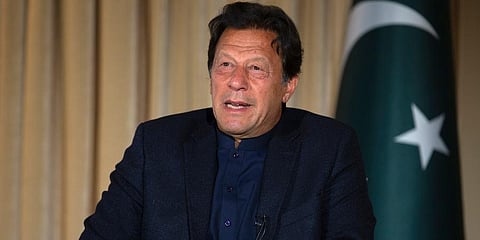

The current political crisis in Pakistan has a déja vu flavour, as the country has gone through worse crises before. The twists and turns in Pakistan’s internal politics over the years not having produced any change in its fundamentally hostile posture towards India, we can watch the unfolding crisis with some detachment.
Some positives can, in fact, emerge for India from this new crisis. One, embroiled in a potentially prolonged political and constitutional crisis at home, Pakistan’s activism on India-related issues, especially on internationalising the Kashmir issue and vituperations against Prime Minister Modi/BJP/RSS, should lose steam officially.
Two, those lobbies in India that favour a resumption of dialogue with Pakistan and over-interpret stray remarks in favour of peace with India made at the military level in Pakistan to then press New Delhi to engage Islamabad will be quiescent for some time. With the fluid political situation now in Pakistan, the case for any worthwhile dialogue to explore the potential discerned in General Bajwa’s statements loses appeal.
If, as was said, with Imran Khan and the generals on the same page, the conditions of dialogue with India to resolve all outstanding issues were especially favourable, and events showed that this was a mirage, now with the current open split between the Army and the civil authority, ties between India and Pakistan will remain in cold storage. This has implications for efforts to inject life into the moribund SAARC also.
Three, political uncertainty in Pakistan will complicate its handling of the problems in Afghanistan. While it is the Army and the ISI that control Pakistan’s Afghan policy, the government plays its role at the international diplomatic level. The situation in Afghanistan is dire, garnering international support for alleviating the conditions there puts a burden on Pakistan.
With the economic mess that Pakistan itself is in, its capacity to act bilaterally and internationally to support Afghanistan will be impaired further by confusion at the political level at home. The various formats to address the Afghan issues, led by China, Russia or the US, in which Pakistan was a key participant, will have to contend with the consequences of the disarray in Pakistan. How much this can be exploited by India to its advantage will depend on our own diplomatic ingenuity.
Pakistan’s euphoria in the US handing over Afghanistan to the Taliban and according to it the strategic depth it had sought for so long against India had begun to wane already and will wane further with the compounding of its own difficulties, political and economic.
Four, political turmoil in Pakistan does not help China, even if it relies on the Pakistan military for its strategic goals. Unless there is a military rule in Pakistan, China has to work with the civilian government on a day-to-day basis. China needs a stable polity in Pakistan for its grand regional design. The strength and scope of Russian overtures toward Pakistan also are conditioned by stable politics there.
Five, Imran Khan’s demagogic tirades against the US, accusing it of conspiring to dislodge him and citing his visit to Russia on the day Russia began its military intervention in Ukraine as a reason, throw a big spanner in ties between the two countries. General Bajwa has tried to do damage control, but as Khan will make this accusation part of his electoral platform, the negative repercussions of this on Pakistan-US ties can only redound to India’s advantage.
Pakistan’s fragilities show how far from reality the ambitions and perspectives set out in its National Security Policy document released earlier this year by Khan.
The writer is a former foreign secretary of India